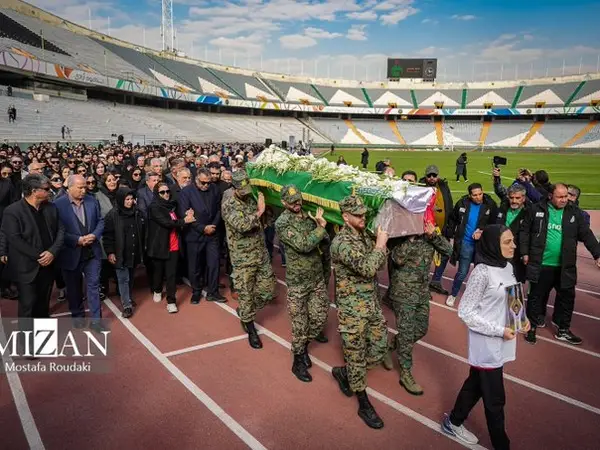Iranian women’s national soccer team player, and Emory University team member Melika Mohammadi, tragically died in a car accident last week, while visiting Iran.
On Sunday, she was commemorated at Tehran’s Azadi Stadium before her repatriation to the United States for burial.
Born in the southern Iranians city of Shiraz in 2000, Mohammadi died on December 24 at the age of 23 in a car accident near the city of Bam in eastern Iran where she played for the city’s Khatoon FC, the winner of the 2022-2013 Iranian league title.
“Melika was also a women’s right activist and large empowering force to younger generations,” her teammates at Emory women’s soccer team for which she played for two years wrote on Instagram.
Female fans of Esteghlal FC honoring the memory of Mohammadi at a match in Tehran on December 30.
“She really wanted to empower other women in Iran and had plans for setting up several soccer schools in Iran with her own money to help other girls whose training opportunities are very limited,” a family member told Iran International.
The memorial during which Mohammadi’s flag-draped coffin was carried by military guards was attended by Mohammadi’s parents and other family members, friends, some sports officials, and several athletes.
Mohammadi’s sister, Aida who was wearing her sister’s number 18 national team shirt, and several others, ran a victory round at the stadium Sunday in her honor.
This was the first time such a ceremony was being held for a female athlete at Azadi Stadium. As a woman, Mohammadi had never practiced or played there due to an unwritten ban.
Women have not even been allowed to watch men’s matches at Azadi and other stadiums for four decades, except in a few rare cases, due to the ban. The world’s soccer authority (FIFA) has tried to convince the Islamic Republic for nearly a decade to lift the ban on women attending stadiums to watch male players. In recent months the ban has been relaxed somewhat.
Women’s matches are also never shown on TV.
Mohammadi’s coffin being carried at Azadi Stadium
Mohammadi started playing soccer from a very young age. She was invited to play for the national girls’ soccer team at the age of eleven and later to the under-17 team and the national women’s team.
Most recently, Mohammadi played as a midfielder for the national women’s soccer team. She played a pivotal role in her team in the 2022 AFC Women’s Asia Cup, the first ever win in the games for Iran’s women’s team.
Since the age of 13, when she moved to the United States with her family, Mohammadi had also simultaneously played for Walt Whitman High School in Bethesda, Maryland as well as Emory University of Atlanta, Georgia, from where she received her Bachelor of Science in anthropology and human biology.
To be able to play for the national team in Iran and study in the US, she had to travel back and forth between Iran and the United States throughout these years.
Her mother said in a speech at the memorial ceremony at Hafezieh Stadium of Shiraz that her daughter decided to play in the Iranian league and the national team to help “shatter the glass ceiling” keeping Iranian women from success.
In the past few days Mohammadi has been remembered by fans with posters, silence, and chants at several matches.
Video posted by former national team coach, Maryam Irandoust, shows Melika and her teammates singing on a train during a tour.
“Iranian women who do not have a share of Azadi Stadium are only given their right of presence there after they die, … Melika Mohammadi is truly commemorated only when women can freely be [allowed] presence at Azadi,” one of the tweets about the event read.
“Alas that Melika came to Azadi Stadium, for the first and last time, in these circumstances,” the very popular former TV football commentator and producer Adel Ferdosipour, who attended the ceremony at Azadi Stadium, told reporters referring to the unwritten ban on women’s team practicing and playing at the stadium like men’s team.
“Melika darling, you were the reason … Iranian female soccer players could go Azadi Stadium, a stadium where they had never trained there even once,” Hajar Dabbaghi, another national soccer team player wrote on Instagram while criticizing male soccer players for failing to show up at Melika’s remembrance.






















